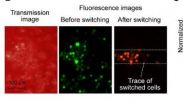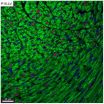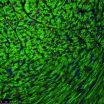(Press-News.org) In a study published today in F1000Research, Professor Kenneth Lee of the Chinese University of Hong Kong reveals the full experimental results of an attempt to replicate a controversial study published in Nature recently that suggested that bathing somatic cells in acid can reprogram them to induced pluripotent stem cells (iPS cells). With systematically collected and fully available data, Lee and his colleagues report that carefully replicating the original acid-treatment method does not induce pluripotency in two types of mouse somatic cells, including those used in the original study.
iPS cells have the unique ability to give rise to most other cell types, and have potentially wide therapeutic applications. This characteristic can be triggered in other cells by transforming them into iPS cells, which further increases the potential for stem cell therapies. Earlier this year, a group from Japan reported a greatly simplified procedure for producing iPS cells by bathing somatic cells in an acid bath.
To verify these claims, Kenneth Lee set out to replicate the work in his own lab, and documented his experiments online in the process, leading to lively online discussions between stem cell scientists who provided feedback and commentary along the way. Using both white blood cells isolated from the spleen of neonatal mice - the same cells used in the original study - and lung fibroblasts, Lee was unable to replicate the original findings, and has now published the full results of his study in F1000Research.
Unlike most journals, all research papers in the open access journal F1000Research are accompanied by the full underlying datasets so other researchers will be able to re-analyse and more easily reproduce the work. In addition, F1000Research employs open peer review by invited expert scientists, which occurs after publication and is published in full online alongside the paper, removing much of the potential bias that often occurs in traditional anonymous pre-publication peer review.
"Publishing Professor Lee’s attempted replication study in this unique and open manner will facilitate a less-hyped and more informed debate and demonstrates the value of this extra level of transparency in the publication process", says Daniel Marovitz, CEO of F1000.
Lee's study will now undergo this transparent invited peer review process and anyone interested to see referees' views as they come in can follow the paper by clicking 'Track' on the published article.
INFORMATION:
To find out more about F1000Research, please contact Eleanor Howell on +44 (0)20 7631 9129 or email press@f1000.com. For more information, visit http://f1000research.com/.
About F1000Research
F1000Research is an original open science journal for life scientists that offers rapid open access publication, transparent post-publication peer review by invited referees, and full data deposition and sharing. The journal accepts all scientifically sound articles, including single findings, case reports, protocols, replications, null/negative results, and more traditional articles. F1000Research is published by U.K.-based Faculty of 1000 (F1000) and has offices in London and New York.
Open science journal publishes attempt to reproduce high-profile stem cell acid bath study
2014-05-08
ELSE PRESS RELEASES FROM THIS DATE:
NASA sees system 90E moving toward southwestern Mexico
2014-05-08
A tropical low pressure area known as System 90E is located a couple of hundred miles southwest of Zihuatenejo, Mexico today and was seen by NASA's Terra satellite on its way to a landfall.
The Moderate Resolution Imaging Spectroradiometer (MODIS) instrument aboard NASA's Terra satellite captured a visible image of System 90E on May 7 at 18:50 UTC/ 2:50 p.m. EDT as it headed to a landfall in southwestern Mexico. The low appeared disorganized as it approached the southwestern coast of Mexico near the states of Michoacan and Guerrero.
According to NOAA's National Hurricane ...
Recycling a patient's lost blood during surgery better than using banked blood
2014-05-08
Patients whose own red blood cells are recycled and given back to them during heart surgery have healthier blood cells better able to carry oxygen where it is most needed compared to those who get transfusions of blood stored in a blood bank, according to results of a small study at Johns Hopkins.
In a report for the June issue of the journal Anesthesia & Analgesia, the researchers say they found that the more units of banked blood a patient received, the more red cell damage they observed. The damage renders the cells less flexible and less able to squeeze through a ...
Few women at high-risk for hereditary breast and ovarian cancer receive genetic counseling
2014-05-08
Mutations in the BRCA1 and BRCA2 genes account for nearly 25 percent of hereditary breast cancers and most hereditary ovarian cancers, yet a study by cancer prevention and control researchers at Virginia Commonwealth University Massey Cancer Center suggests an alarmingly small amount of women who qualify for BRCA genetic counseling actually receive the services. Additionally, they found that a significant proportion of women with a family history of breast and ovarian cancer underestimate their own risk.
The study, published in the April edition of the Journal of Community ...
Anti-aging factor offers brain boost too
2014-05-08
A variant of the gene KLOTHO is known for its anti-aging effects in people fortunate enough to carry one copy. Now researchers find that it also has benefits when it comes to brain function. The variant appears to lend beneficial cognitive effects by increasing overall levels of klotho in the bloodstream and brain.
What's more, the improvements in learning and memory associated with klotho elevation aren't strictly tied to aging. They do occur in aging mice, but also in young animals, according to a report published in the Cell Press journal Cell Reports on May 8th. ...
What vigilant squid can teach us about the purpose of pain
2014-05-08
Most of us have probably felt that lasting sense of anxiety or even pain after enduring some kind of accident or injury. Now, researchers have the first evidence in any animal that there may be a very good reason for that kind of heightened sensitivity—or at least there is in the battle of squid versus fish. Squid that behave with extra vigilance after experiencing even a minor injury are more likely to live to see another day, according to a report appearing in the Cell Press journal Current Biology on May 8.
The findings suggest that behaviors that appear counterproductive ...
Antibiotic resistance genes are essentially everywhere
2014-05-08
The largest metagenomic search for antibiotic resistance genes in the DNA sequences of microbial communities from around the globe has found that bacteria carrying those vexing genes turn up everywhere in nature that scientists look for them. The findings reported in the Cell Press journal Current Biology on May 8 add to evidence showing just how common and abundant those resistance genes really are in natural environments.
This big-picture, ecological view on a growing healthcare concern emphasizes the important relationship between antibiotic resistance in the clinic ...
New technology using florescent proteins tracks cancer cells circulating in the blood
2014-05-08
After cancer spreads, finding and destroying malignant cells that circulate in the body is usually critical to patient survival. Now, researchers reporting in the Cell Press journal Chemistry & Biology have developed a new method that allows investigators to label and track single tumor cells circulating in the blood. This advance could help investigators develop a better understanding of cancer spread and how to stop it.
Cancer spread, or metastasis, leads to up to 90% of cancer deaths. Investigators currently do not have the clinical capability to intervene and stop ...
Spurt of heart muscle cell division seen in mice well after birth
2014-05-08
The entire heart muscle in young children may hold untapped potential for regeneration, new research suggests.
For decades, scientists believed that after a child's first few days of life, cardiac muscle cells did not divide. Instead, the assumption was that the heart could only grow by having the muscle cells become larger.
Cracks were already appearing in that theory. But new findings in mice, scheduled for publication in Cell, provide a dramatic counterexample -- with implications for the treatment of congenital heart disorders in humans.
Researchers at Emory University ...
Discovery that heart cells replicate during adolescence opens new avenue for heart repair
2014-05-08
It is widely accepted that heart muscle cells in mammals stop replicating shortly after birth, limiting the ability of the heart to repair itself after injury. A study published by Cell Press May 8th in the journal Cell now shows that heart muscle cells in mice undergo a brief proliferative burst prior to adolescence, increasing in number by about 40% to allow the heart to meet the increased circulatory needs of the body during a period of rapid growth. The findings suggest that thyroid hormone therapy could stimulate this process and enhance the heart's ability to regenerate ...
Polar bear genome reveals rapid adaptation to fatty diet
2014-05-08
Polar bears adapted to life in cold Arctic climates in part by relying on a high-fat diet mainly consisting of seals and their blubber. In a study published by Cell Press May 8th in the journal Cell, researchers discovered that mutations in genes involved in cardiovascular function allowed polar bears to rapidly evolve the ability to consume a fatty diet without developing high rates of heart disease. Moreover, the study revealed that polar bears diverged from brown bears less than 500,000 years ago—much more recently than estimates based on previous genomic data.
"In ...



